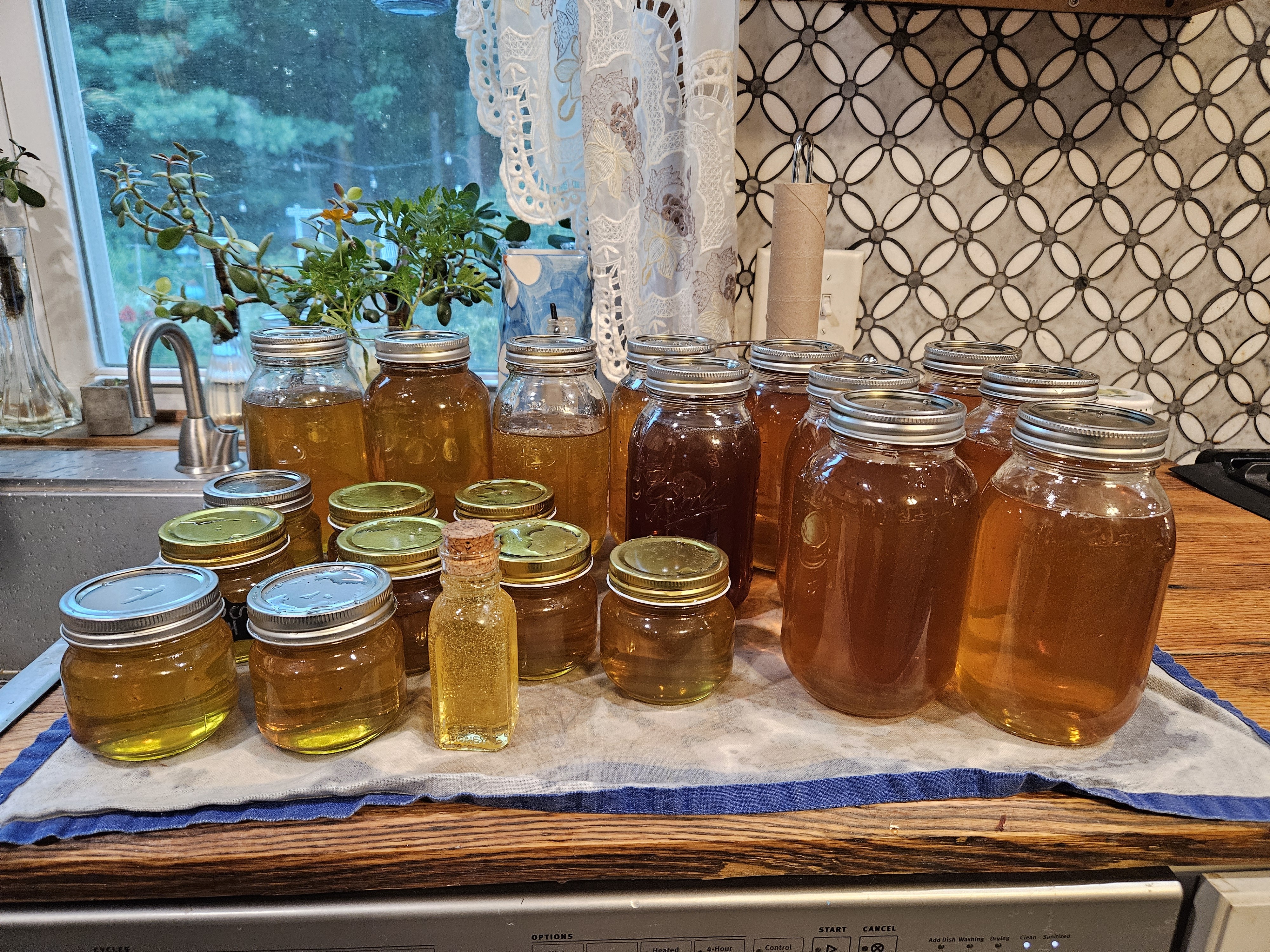this post was submitted on 22 Jul 2024
93 points (97.9% liked)
Beekeeping and Bees
482 readers
1 users here now
Beekeeping, bee gardens, bee research, bee pictures, and honey appreciation.
founded 1 year ago
MODERATORS
you are viewing a single comment's thread
view the rest of the comments
view the rest of the comments

Why is some light but some darker?
That's where my question comes from, some flowers (wildflowers, fir trees...) make way darker honey than typical summer flowers for example. Rapeseed flowers produce almost white, very solid honey.
Are the different colors striped through the different combs? Or is one full comb dark and the others light?
I was expecting seasonality actually, since different flowers blossom at different times. So usually you would get one color throughout the blossoming period of that particular plant.
Bees usually don't fill all honeycombs at once, but start from one end of the hive and progress to the other side, working on maybe 2-3 at the same time. So if you were to leave them in the hives all through, you'd end up with different shades of honey across several honeycombs. Commercially they would remove them after one variety of flowers is finished and let the bees start over with empty combs, but for private use that is often overkill. So you'd be more likely to find beekeepers who extract them one by one to make sure they are separated. Others don't mind and just centrifuge them all at once and collect a blend, essentially.
That's a great explanation! Thanks!
My pleasure!
Flow Hive is the beekeeper answer.
The honey gets stored by the bees over months. Different pollen sources are available at different times, so it looks different in different places in the hive. I use a type of frame that let's me harvest each frame individually, so the different colors don't get all blended together.
Thank you!